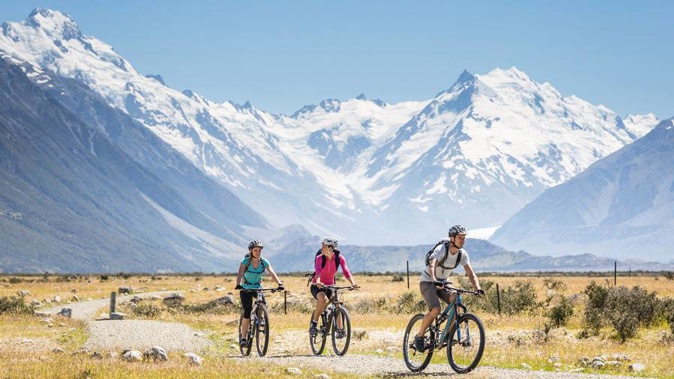
A proposed charge on international visitors to New Zealand is unnecessary and possibly unworkable, a tourism industry group says.
Labour campaigned on charging international visitors a $25 per trip levy, with 60 per cent of funds collected going on tourism projects, and the rest going on conservation work.
Tourism Minister Kelvin Davis has asked for advice on implementing a levy, and last night said no decisions would be made until after that was received.
The previous National Government introduced a border clearance levy, which has meant people with a return ticket to or from New Zealand pay a total charge of about $22, included in their airfare.
Labour's plan for a new charge would come on top of that, but only affect visitors who are not citizens or residents of New Zealand.
Tourism Industry Aotearoa's chief executive Chris Roberts told the Herald the proposal as outlined pre-election, "is not actually implementable".
"We can only find one border tax in the world where local passport holders and residents are excluded from paying it. And that is in Mexico, but Mexicans who fly out of Mexico have to pay and then seek reimbursement," Roberts said.
"Unless they are going to set up booths at the airport to collect the tax, to put two different prices into all the airline systems around the world . . . that is a complication that they haven't thought through.
"We are yet to see how it could be workable. It would essentially be coming up with a world first."
The biggest impact on visitors would be on those coming from Australia, Roberts said.
"The Tasman is already the most heavily taxed air route in the world because the Australians have $60-worth of taxes collected by their Government. If another tax came in visitors would be paying around $100 per ticket in tax. That makes it extremely difficult for the low cost carriers to survive."
Last week Finance Minister Grant Robertson talked about a tourism levy, when answering questions about a new tax working group.
"We have got a commitment in our manifesto about a levy that we proposed. That is not part of this work, we are advancing that separately," he said.
Asked when a levy would come in, Robertson said that work was underway, but was on a slower timeframe as it was not part of the Government's "first 100 days" programme.
"There are only so many things that we can fit into the 100 day plan. But it will be worked on next year."
Davis said he had asked for advice on a levy, including how and where it could be collected, "as well as other options".
"No final decision will be made until that advice has been provided. Industry are aware that a levy is one of the options we are considering and I look forward to further discussions with them."
Since January 2016, all international travellers have been charged a border clearance levy, used to pay for border screening and security. Labour's website references that change when explaining why there is no evidence to support the claim a tourism levy will affect visitor numbers.
"After the current Government introduced a $22 border levy, visitor numbers were not impacted at all – in fact, they rose more quickly than expected," the website states.
"International visitors spend, on average, more than $3,000 each in New Zealand and more than $1,000 on international airfares. The $25 Tourism and Conservation Infrastructure Fund Levy will add less than 1 per cent to this and is far less than the variability in airfares."
National's finance spokesman Steven Joyce said the concern with a tourist tax was it would add to the cost of coming here, and put some travelers off.
"Everybody says, 'they will keep coming'. But, actually, wherever you are in the world, you have choices…New Zealand is already quite expensive, and there are countries like Croatia and others that we compete with in terms of scenic beauty and so on.
"I would certainly continue to argue against it. There is no actual need for it if the Government runs its accounts properly. They have got rising tax revenues anyway, including a fair bit from the tourism industry."
A spokeswoman for Hospitality NZ said there was a need for a considered conversation about how tourism is funded.
"I guess our greatest fear is if a national levy isn't brought in, then what we will see is council's bringing in targeted rates . . . where individual sectors of tourism get pinged."
Local Government New Zealand has voiced support for a charge, saying there is a clear need for infrastructure, and councils struggled to fund it.
Take your Radio, Podcasts and Music with you









